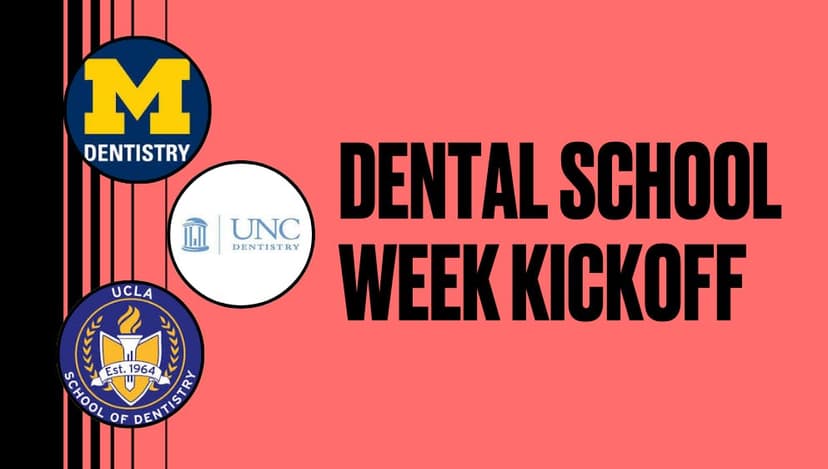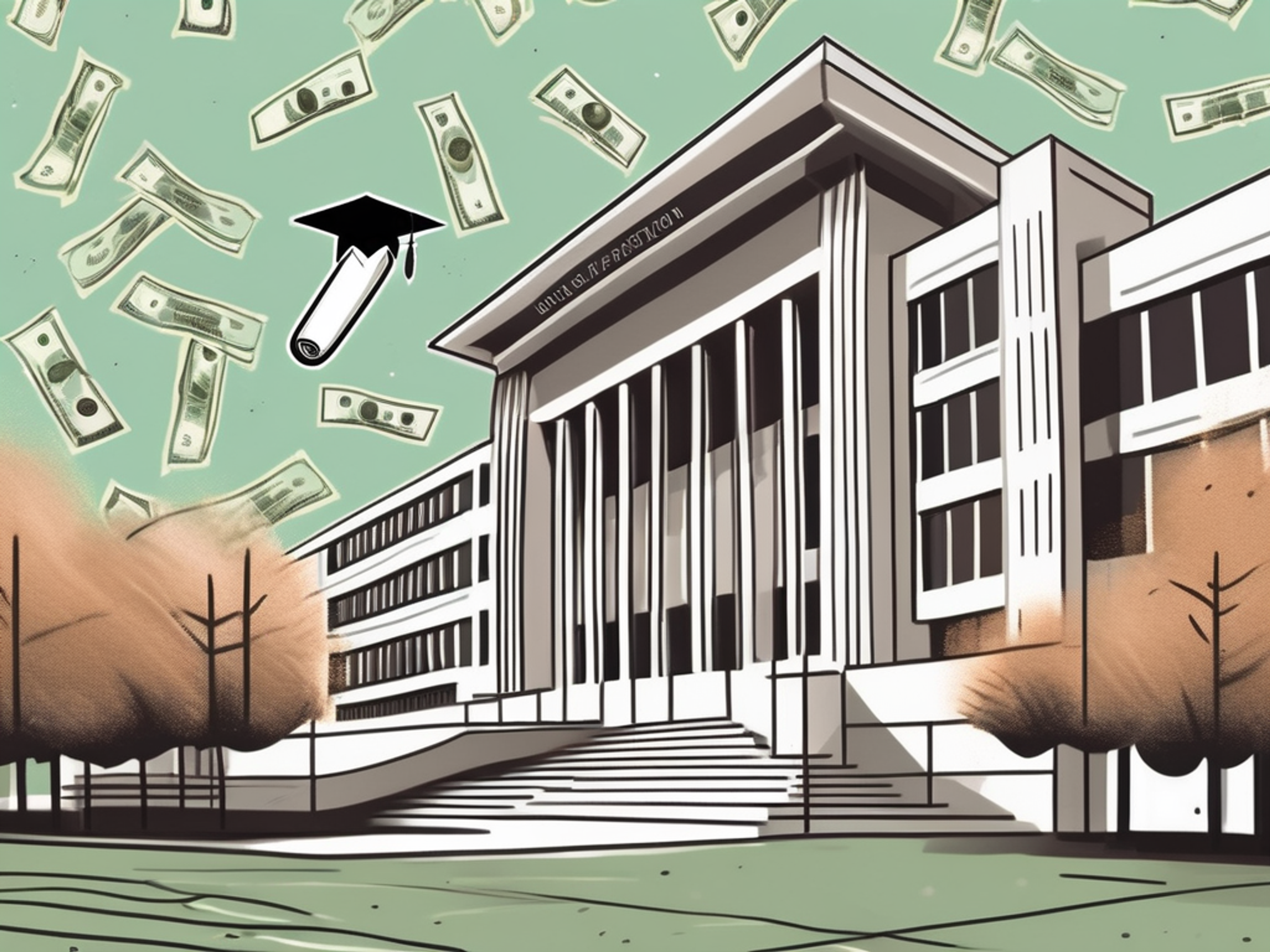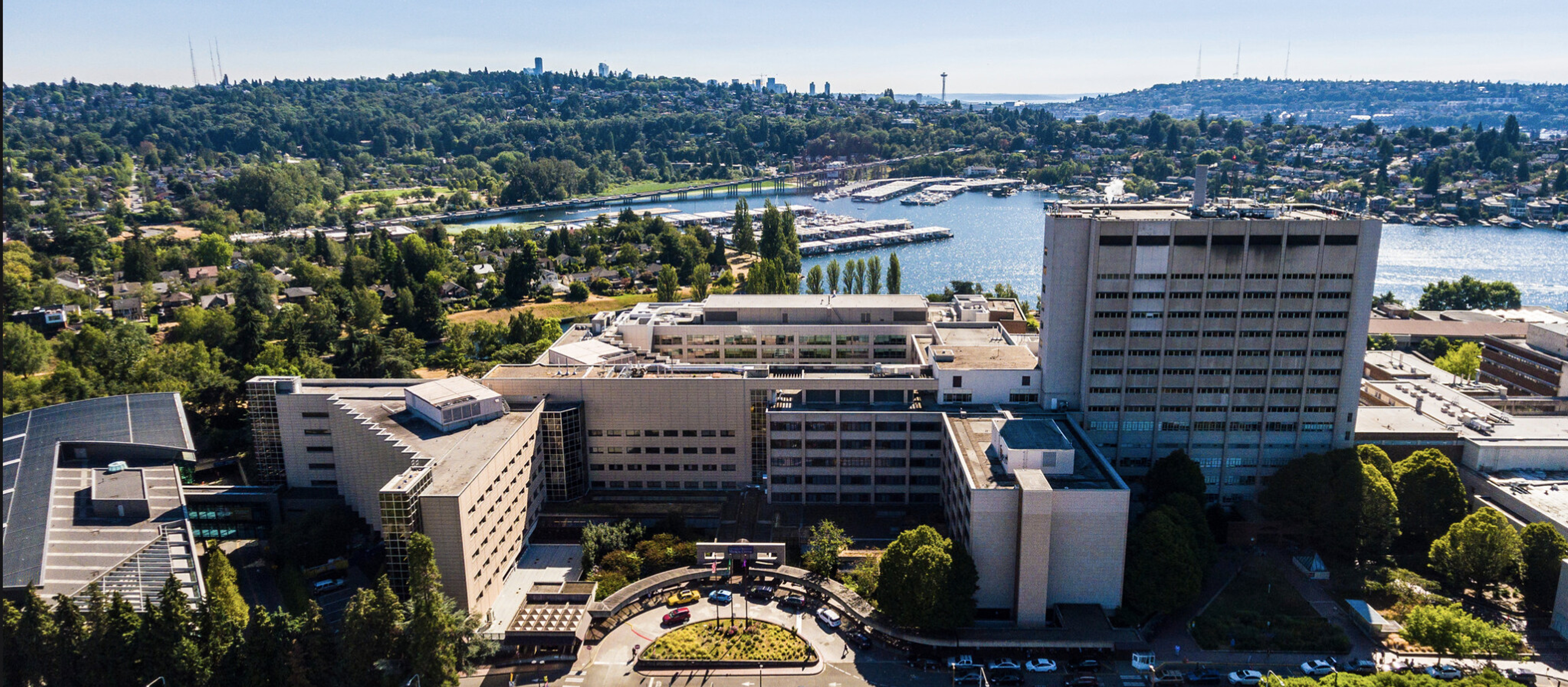How Hard Is It (Actually) to Become a Dentist? | Leland
Learn how much dentists make and what the path to becoming one entails, including education, challenges, specialties, and long-term career outlook.
Posted November 10, 2025

Join a free event
Learn from top coaches and industry experts in live, interactive sessions you can join for free.
Table of Contents
Dentistry often shows up in lists of top-paying, high-satisfaction careers. But behind the prestige and paycheck lies a journey that tests more than intelligence. It tests endurance, precision, emotional resilience, and debt tolerance. Yes, the numbers are enticing: six-figure salaries, autonomy, and respect, but what does it really take to get there?
This guide breaks down the reality: the pressure points, pitfalls, and rewards of the dental path. If you're considering becoming a dentist, don’t just ask how much they make. Ask what it costs to get there, mentally, financially, and physically.
Average Dentist Salary and Earning Potential
As of 2025, the average annual salary for a dentist in the United States ranges from $180,000 to $200,000, depending on factors such as experience, location, and specialty. According to the latest U.S. Bureau of Labor Statistics (BLS) report, the median annual wage for dentists is $179,210, while recent industry surveys show that most general dentists earn an average of $196,100 per year. The mean dentist salary nationally is $170,910.
Practice ownership continues to make a major difference in income. Dentists who own their practices earn an average of $320,316 annually, while associate (non-owner) dentists make around $225,929. Specialists such as orthodontists and oral surgeons can earn $300,000 to $400,000 per year due to the complexity of their procedures and advanced training requirements. Earnings typically increase with a dentist's years of experience and patient base.
Expert Tip: For the most accurate and up-to-date wage statistics, it is essential to visit a reliable site and ensure your browser is updated for the best user experience.
Wage Statistics and Trends by Region
Wages vary significantly by state and city, with the highest salaries often concentrated in metropolitan areas. Dentists in high-demand cities like Seattle, Washington, and Columbia, South Carolina, generally earn more than those in smaller towns.
Here are some of the top-paying cities for dentists, based on recent salary data and projected demand:
| City | Average Annual Salary (2025) | Demand Growth |
|---|---|---|
| Austin, Texas | $266,220 | High |
| Seattle, Washington | $258,013 | High |
| Boston, Massachusetts | $253,295 | High |
| San Francisco, California | $248,568 | High |
| Columbia, South Carolina | $218,688 | Moderate |
Note: Salaries tend to be highest in high-cost coastal cities and tech hubs, but these markets also come with steeper competition and living expenses. Consider both earning potential and lifestyle fit when evaluating locations.
How to Get into Dental School
Academic Requirements
Success starts with a solid background in science during high school, especially in biology, chemistry, physics, and mathematics. Aspiring dentists typically pursue an undergraduate degree, often in a science-related field, and complete prerequisite courses necessary for dental school.
After high school, aspiring dentists typically pursue a bachelor's degree in a science-related field, although this is not always a requirement. Some dental schools accept students with diverse academic backgrounds, as long as they have completed prerequisite courses in biology, chemistry, physics, and math.
Preparing for Dental School
Dental school preparation is highly competitive, demanding both academic excellence and well-rounded experience. Successful applicants often demonstrate strong GPAs, leadership, community involvement, and a clear commitment to dentistry. Strengthen your application by pursuing internships, research roles, or volunteer work in the dental field. Well-written recommendation letters and a personal statement that communicates genuine motivation and self-awareness can also make a significant impact.
The Dental Schools Admissions
Admission to dental school is challenging, but careful preparation makes a difference. Each school has specific requirements, so it’s important to research and customize your application. While academic achievements are essential, admissions committees also value qualities such as empathy, leadership, and communication skills. Choose extracurricular activities that reflect these qualities and align with dentistry.
Finding the right school is equally important. Review factors such as program quality, location, and cost, and consider financial aid options like scholarships and loans to manage costs effectively.
Crushing the DAT: Your First Major Hurdle
If dental school is a mountain, the Dental Admission Test (DAT) is your first major climb, and it’s a steep one.
Spanning over four hours, the DAT tests your perceptual ability, a section that asks you to mentally rotate 3D shapes or spot spatial differences. It’s unlike anything you’ve done in undergrad.
Most successful applicants score between 20–23 (the national average is 19), but top-tier programs often look for scores above 22. While GPA shows how you performed over time, the DAT is your one shot to prove academic readiness under pressure.
What actually works?
- Structured prep courses (Kaplan, DAT Bootcamp)
- Full-length practice tests with timing
- Daily review of weak areas, not just strengths
What doesn’t? Passive rereading. Cramming. Ignoring perceptual ability until the last minute.
Expert tip: Take your first full practice test before you feel ready. It’s the only way to simulate the stamina and stress that the real exam demands.
Learn more about how to ace the Dental Admission Test (DAT) with 5 Tips for success!
Craft a Strong Personal Statement
Your personal statement is a critical part of the dental school application. It highlights your unique qualities and dedication to dentistry. Go beyond achievements; focus on experiences that reflect growth and your interest in the field. Authenticity matters, so tailor your statement to each school’s mission and avoid generic language.
Learn more about how to write a winning dental school personal statement!
Composing a Strong Dental School Letter of Intent
A compelling letter of intent helps you stand out by showing who you are beyond your transcript. It’s your opportunity to connect your personal journey to your professional goals and to the mission of the school. Use specific anecdotes that demonstrate resilience, curiosity, or empathy. Highlight your experiences, like clinical exposure, volunteer work, or mentorship moments that shaped your interest in the field. Emphasize not only your qualifications, but your motivation and mindset.
Remember, strong letters also convey clarity of purpose. Ask yourself: Why this school? Why this profession? Show that you've done the work to understand both.
Prepare for Dental School Interviews
Preparation for dental school interviews is essential to the admissions process. Tailoring responses to each school’s values shows alignment with their program. Practice common questions with peers or advisors to boost confidence, and keep a record of achievements and experiences to enhance your responses.
Remember, thorough preparation and thoughtful responses will set you up for success in your dental school interviews!

Volunteer Hours for Dental School Admission
Volunteer work is an important part of a dental school application, reflecting dedication to service and building skills like compassion and teamwork. Options include dental-related volunteering, such as clinic work, or other community activities like tutoring or mentoring. Choose opportunities that align with your interests and emphasize the impact of this experience in your application.
If traditional volunteering isn’t possible, consider job shadowing, research, or internships to gain relevant experience. When discussing your volunteer experience in your application essay or during interviews, emphasize its impact on your desire to pursue dentistry and your development of crucial skills.
Expert Tip: If volunteering isn't feasible, alternatives like job shadowing, research, or internships can still provide valuable experience.
Get Into Your Dream Dental Program With the Help of an Expert
We know that the process of planning out, writing, and submitting applications can be a stressful time. Luckily for you, we have an all-star team of dental school admission coaches ready to guide you every step of the way. Our experts provide personalized support and strategies to help you craft standout applications and maximize your chances of getting into your dream dental program. Take a look at all of our dental school coaches here, or view our top experts below.
Dental School
Once accepted into dental school, students embark on a four-year journey that combines classroom learning with practical training. The first two years typically focus on basic sciences and laboratory work, while the last two years involve clinical practice under the supervision of experienced dentists.
Dental school is rigorous and requires a significant commitment of time and energy. Students must master a wide range of skills, from diagnosing oral diseases to performing complex dental procedures. In addition to technical skills, they must also develop strong interpersonal skills to communicate effectively with patients and colleagues.
The Hidden Toll: What Makes Dental School So Demanding
By the second year of dental school, most students can recite dental anatomy in their sleep, but that doesn’t mean they’re sleeping much.
Dental school is a grind, and not just academically. Students often juggle clinic hours, lab projects, and board exam prep all at once. “It felt like running a marathon at a sprinter’s pace,” recalls Ana, a third-year student in Texas. “You don’t really get to pause, you just survive one day and move on to the next.”
What makes the journey especially tough is its multi-dimensional strain. The physical toll of long hours bent over patients. The emotional pressure of performing procedures under supervision. The financial stress of borrowing $300,000+ in student loans. Many students report burnout by year two, and mental health resources vary widely by school.
While support systems exist, they're not always enough. The most successful students don’t just study hard; they build systems: time-blocked calendars, mental health check-ins, and communities of peers who understand the struggle.
This stage of the journey tests more than intelligence. It tests stamina, self-awareness, and the ability to ask for help. So, it is crucial to review and learn tips on how to manage your mental health as you prepare to take the DAT, admissions, and begin your dental school journey.
Maintaining a Work-Life Balance in Dental School
In dental school, it's crucial to prioritize a healthy work-life balance, effective time management, and self-care. Participating in extracurricular activities, maintaining a healthy lifestyle, and seeking support from friends, family, and mentors are important for managing stress and overall well-being.
Dental Specialities
After completing dental school, dentists have the opportunity to pursue various specialties within the field, each focusing on different aspects of human oral health and treatment. There are 12 specific dental specialties recognized by the American Dental Association (ADA).
Types of Dental Specialties
Some popular specialties include orthodontics, periodontics, pediatric dentistry, endodontics, and oral and maxillofacial surgery. Each specialty area requires additional education and training beyond the four-year dental school program, often in the form of residency programs. The average salaries for orthodontists typically range from $200,000 to $350,000+ per year.
- Orthodontics deals with correcting misaligned teeth and jaws using braces or other orthodontic appliances.
- Oral and maxillofacial surgery involves surgical procedures related to the mouth, jaws, and face.
- Endodontics focuses on treating diseases and injuries affecting the dental pulp and roots of teeth, often performing root canal therapy.
- Periodontics specializes in the prevention, diagnosis, and treatment of gum diseases and related conditions.
Pursuing a specialty allows dentists to deepen their own area of expertise, serve a specific patient population, and contribute to advancing dental care in specialized areas.
Licensure and Continuing Education
After graduating from dental school, dentists must pass a licensure exam to practice professionally. This exam tests their knowledge and skills and ensures they meet the standards of the profession. Once licensed, dentists are required to participate in continuing education to keep up with advances in the field.
Continuing education is an integral part of a dentist's career. It involves attending workshops, seminars, and conferences to learn about new research, techniques, and technologies in dentistry. This commitment to lifelong learning is essential for providing the best possible care to patients.
So, How Hard is it to Become a Dentist?
When most people review dentist pay data or search “how much do dentists make,” they often see impressive six-figure numbers, but those figures only tell part of the story. The real value of a dental career lies not just in the wage growth or salary trends, but in the daily human connection that defines the profession. Every second spent mastering anatomy, perfecting hand skills, and learning to respond to patients’ needs prepares you for a career that blends science, service, and art.
Yes, the financial rewards are strong, especially for those who specialize or own a practice, but the most successful dentists are the ones who continuously adapt, study new data, and refine how they serve their communities. Dentistry is evolving with new technology, rising patient demand, and better access to care, creating one of the most stable and respected healthcare paths today.
Self-Check Framework: Do You Have What It Takes?
Ask yourself the following questions honestly. Your answers can help you gauge whether this path aligns with your goals and personality:
- Do you enjoy precision and repetitive practice? Dentistry involves detailed, hands-on procedures that require patience and focus. Many dentists describe it as “art you can’t rush.” If you take pride in perfecting small details, that’s a good sign.
- Can you handle high-pressure, people-centered situations? Patients may arrive anxious or in pain. Successful dentists balance calm communication with technical performance under stress. The ability to stay composed and empathetic is key.
- Are you prepared for a long academic and financial journey? Dental school can take eight years of education and significant student debt before you start earning. Talk to professionals who’ve gone through it to understand the trade-offs.
- Do you value consistency and long-term patient relationships? Many dentists build deep connections with families over decades. If you’re motivated by continuity of care rather than constant novelty, this field can be deeply rewarding.
- Do you see healthcare as a calling, not just a job? Dentistry is service-driven. The satisfaction often comes from small victories and helping patients smile again.
If you’re nodding “yes” to most of these, you may be a strong fit for dentistry. The next step is to speak with someone who’s been there.
Ready to Take the Next Step Toward Your Dental Career?
Becoming a dentist takes grit, patience, and years of study. It is one of the most stable, respected, and personally fulfilling careers in healthcare. Get expert, one-on-one guidance from dental school admissions coaches. Whether you’re prepping for the DAT or writing your personal statement, our experts have helped hundreds of students earn acceptances.
Start your journey today. Connect with a dental admissions coach at Leland and turn your dream into a reality.
Read these next:
- How to Become a Dentist: Application, Degree Programs, FAQs
- Everything You Need to Know About Dental School
- Best Majors for Dental School: A Guide for Pre-Dental Students
- Planning Your Dental School Applications: How Many Schools Should You Apply To?
- Writing a Winning Dental School Personal Statement
FAQs
What is the highest-paid dentist?
- The highest paid dental specialists in 2025 are in roles like Oral and Maxillofacial Surgery and Dental Anesthesiology, with annual salaries ranging from roughly $267,000 to $440,000+, depending on experience and location.
How much does a general dentist make in Virginia?
- In Virginia in 2025, a dentist’s average salary is approximately $226,128 per year, based on Indeed job-posting data.
Is becoming a dentist hard?
- Yes. It requires a strong academic foundation, competitive admissions, passing challenging exams, and sustained effort through clinical training, all while developing patient care and business skills.
Can a dentist make $300K?
- Yes. Many dentists, especially owners, specialists, or those working in high-production practices in strong markets, can and do make $300,000+ per year.
Do dentists earn more in urban or rural areas?
- Dentists usually earn more in urban areas because of higher living costs and demand. Still, rural areas may offer loan repayment or signing bonuses that help balance lower average pay.
How does owning a dental practice affect income?
- Owning a practice typically boosts income since dentists control revenue and growth. However, expenses like staff, rent, and equipment reduce overall profit.
Browse hundreds of expert coaches
Leland coaches have helped thousands of people achieve their goals. A dedicated mentor can make all the difference.


















